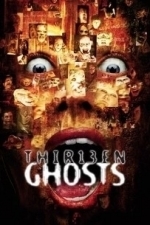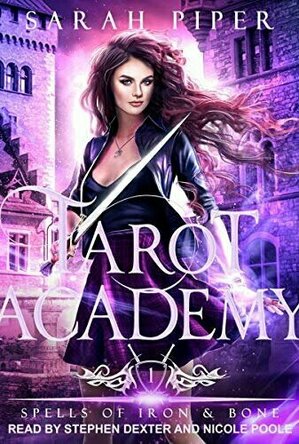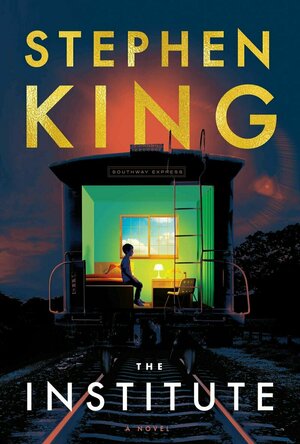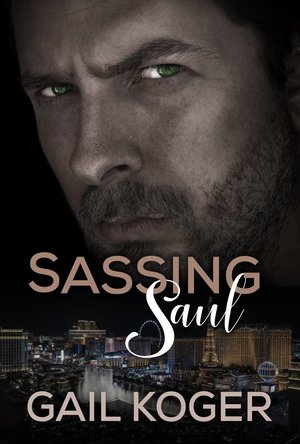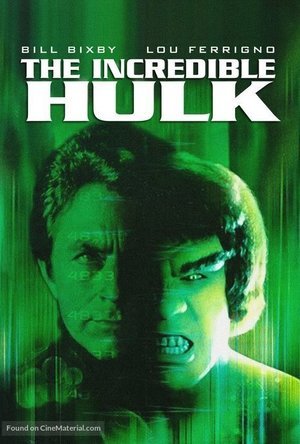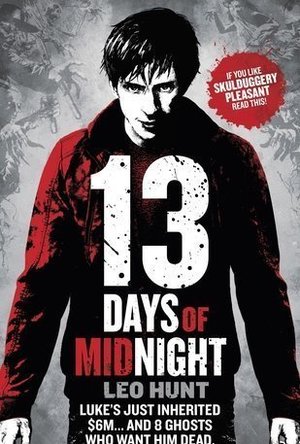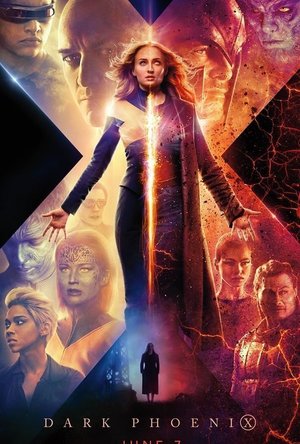Search
Steve Fearon (84 KP) rated Thir13en Ghosts (2001) in Movies
Sep 5, 2018
The ghosts aren't the only thing that we can see through...
Contains spoilers, click to show
As part of a 'rewatching films from the 90's and 2000's' theme that me and the missus are going through at the moment, we came to a film i remembered fairly fondly, the remake of Thirteen Ghosts!
Unlike a lot of films from this period, this wasn't as terrible to rewatch as some, though it still reeks of some of the tropes of that period, including the casting of Shannon Elizabeth, the evil uncle and the corporate Lawyer baddie as well as the kids that can't help but run towards trouble at every opportunity.
Lets be honest, this film isn't really a scary one, it has some nice creepy elements, but it is largely a safe horror entry for people that shy away from the more intense/gory side of the genre.
Matthew Lillard chews all the scenery he can, and is largely very entertaining as a psychic with powers that they touch on without really explaining, but thats ok, its not the sort of film where it matters all that much.
Better than some, worse than others, this is a film for a rainy sunday evening, where it doesn't matter too much if you talk over the miles and miles of exposition, and where you can happily pull apart the plot holes and confusing character motives to your hearts content.
Unlike a lot of films from this period, this wasn't as terrible to rewatch as some, though it still reeks of some of the tropes of that period, including the casting of Shannon Elizabeth, the evil uncle and the corporate Lawyer baddie as well as the kids that can't help but run towards trouble at every opportunity.
Lets be honest, this film isn't really a scary one, it has some nice creepy elements, but it is largely a safe horror entry for people that shy away from the more intense/gory side of the genre.
Matthew Lillard chews all the scenery he can, and is largely very entertaining as a psychic with powers that they touch on without really explaining, but thats ok, its not the sort of film where it matters all that much.
Better than some, worse than others, this is a film for a rainy sunday evening, where it doesn't matter too much if you talk over the miles and miles of exposition, and where you can happily pull apart the plot holes and confusing character motives to your hearts content.
Lyndsey Gollogly (2893 KP) rated Spells of Iron and Bone in Books
Oct 15, 2020
176 of 200
Kindle
Spells of Iron and bone ( Tarot Academy book1)
By Sarah Piper
Magick is real. It’s also highly illegal—not that I’m worried about that.
Sure, I heal faster than most, and I’ve got a sixth sense for brewing tea that can fix just about any problem, but my café isn’t exactly a hotbed of paranormal activity.
At least it wasn’t… until some psycho attacked me and woke up the freaky, forbidden magick inside, earning me a one-way ticket to jail.
Now, a covert magickal university is offering me a deal: my freedom in exchange for help with the Tarot prophecies—cryptic predictions they believe hold the key to stopping a deadly apocalyptic plot.
Predictions only I can decipher.
Because the witch who divined them? She died years ago.
I should know. She was my mother.
Grab your grimoires, girls. Magick school’s officially in session.
All I have to do now is master my crazy powers, decode the doomsday prophecies, outwit a mean-girl coven that puts the psycho in psychic, and survive the temptations of one very naughty professor and three scorching-hot, overprotective mages shadowing my every move.
There's only one problem.
If I’m right about the prophecies?
Survival isn’t in the cards for any of us.
I’m really glad I picked this up it was an unknown author for me and I was a bit standoffish with the sound of it! The whole don’t judge a book by it cover smacks me in the face! I loved it! I’m fascinated with the Aracna world they make such interesting reads!
I really like Stevie and the 4 delicious men at her side! I also enjoyed the story it intriguing can’t wait to read more!
Kindle
Spells of Iron and bone ( Tarot Academy book1)
By Sarah Piper
Magick is real. It’s also highly illegal—not that I’m worried about that.
Sure, I heal faster than most, and I’ve got a sixth sense for brewing tea that can fix just about any problem, but my café isn’t exactly a hotbed of paranormal activity.
At least it wasn’t… until some psycho attacked me and woke up the freaky, forbidden magick inside, earning me a one-way ticket to jail.
Now, a covert magickal university is offering me a deal: my freedom in exchange for help with the Tarot prophecies—cryptic predictions they believe hold the key to stopping a deadly apocalyptic plot.
Predictions only I can decipher.
Because the witch who divined them? She died years ago.
I should know. She was my mother.
Grab your grimoires, girls. Magick school’s officially in session.
All I have to do now is master my crazy powers, decode the doomsday prophecies, outwit a mean-girl coven that puts the psycho in psychic, and survive the temptations of one very naughty professor and three scorching-hot, overprotective mages shadowing my every move.
There's only one problem.
If I’m right about the prophecies?
Survival isn’t in the cards for any of us.
I’m really glad I picked this up it was an unknown author for me and I was a bit standoffish with the sound of it! The whole don’t judge a book by it cover smacks me in the face! I loved it! I’m fascinated with the Aracna world they make such interesting reads!
I really like Stevie and the 4 delicious men at her side! I also enjoyed the story it intriguing can’t wait to read more!
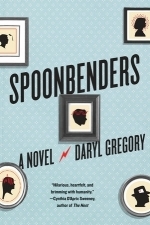
Spoonbenders
Book
Teddy Telemachus is a charming con man with a gift for sleight of hand and some shady underground...
Fantasy
Hadley (567 KP) rated The Institute in Books
Oct 24, 2019
Likable characters (1 more)
Paranormal
Sexualizing children (1 more)
Not a regular King story
At around 95 novels, Stephen King, who is one of the most well-known authors of our time, debuts a possible new novel series about psychic children. 'The Institute' mostly takes place in a hidden facility located in a wooded area of Maine,where readers follow a kidnapped child prodigy named Luke Ellis, and the government experiments that are inflicted on him to heighten his psychic powers.
So why is the government kidnapping children to conduct psychic research on them? At first, it may seem just that: psychic research, because psychic powers seem to be more powerful in young children than adults, but nothing is what it seems. As the boss of this Institute says to the children: " ' There's a war going on, and you have been called upon to serve your country.' " A few sentences later, and she explains it a little more in depth for Ellis: " ' This is not an arms race but a mind race, and if we lose, the consequences would be more than dire; they would be unimaginable. You may only be twelve, but you are a soldier in an undeclared war. The same is true of Kalisha and the others. Do you like it? Of course not. Draftees never do, and draftees sometimes need to be taught that there are consequences for not following orders. I believe you've already had one lesson in that regard. If you're as bright as your records say you are, perhaps you won't need another. If you do, however, you'll get it. This is not your home. This is not your school. You will not simply be given an extra chore or sent to the principal's office or given detention; you will be punished. Clear? ' "
King writes in a third-person point-of-view, which makes it a little disturbing that when any female character he introduces (including girls as young as 11-years-old) are usually introduced by their breast size. It's not uncommon for male writers to introduce female characters this way, but when most of them are children, it can be very off putting for readers. One scene, King makes Ellis notice that Kalisha has 'her hands on her mostly nonexistent hips,' then writes about the character Helen in the same scene: " Another door opened and Helen Simms appeared, clad - - - sort of - - - in what Luke believed were called babydoll pajamas. She had hips, plus other interesting equipment. " Both of these characters are only twelve-years-old.
Aside from the children, King also introduces an important character named Tim Jamieson. This character starts the novel off before readers meet Ellis; we learn that he is a former cop who is traveling to New York while taking odd jobs on his way there, including a night knocker job in DuPray, South Carolina (which becomes very important later on in the story) .
Avery, my personal favorite character in the book, is a ten-year-old who acts like a five-year-old, " The screamer was a little boy in Star Wars pajamas, hammering on doors with small fists that went up and down like pistons. Ten? Avery Dixon looked six, seven at most. The crotch and one leg of his pajama pants were wet and sticking to him. " Dixon and Kalisha are both in the Institute for telepathy. " 'You know so,' Kalisha said, and began to stroke the little boy's [Dixon] hair again. Like had a sense - - - maybe bullshit, maybe not - - - that a lot was going on between them. Inside traffic. " And quickly, the group of children become protective of Dixon, " 'But you need to take care of this one for as long as you can. When I think of Tony or Zeke or that bitch Winona hitting Avery, it makes me want to cry. ' " Kalisha confides in Ellis.
Kalisha, one of the other children that has been kidnapped, is another very likable character that seems to keep all of the other kids' spirits up by either keeping them out of trouble with advice or stopping small fights between them. Another kid named Nicky, the troublemaker of the group, is the stereo-typical bad boy. He gets involved in fistfights with the orderlies that work at the Institute, taking quite a bit of abuse in return. But eventually, the rebelliousness catches up with him, leading him to be moved from Front Half to the dreaded Back Half.
Readers later learn that Back Half is worse than Front Half. Most questions we may have about why the Institute is abusing these children are all answered when readers get to see into Back Half from Kalisha's point-of-view. But what is left unanswered is exactly how many children have been through the Institute? From the amount of children seen just in this story, the numbers could be in the hundreds of thousands!
But, as expected, the children come up with a plan to escape - - - with giving as little detail as possible, an orderlie at the Institute is helped by one of the children with a personal problem, and in return, this orderlie decides to help one of them escape and reveal everything that is the Institute. The instance the escape starts being discussed is when the book really picks up.
King's writing of the abuse our characters sustain is very real (" When Stevie Whipple asked where he'd been and what was wrong, Luke just shook his head. He didn't want to talk about the tank. Not now, not ever. He supposed it was like being in a war. You got drafted, you went, but you didn't want to talk about what you'd seen, or what had happened to you there." ) The scene in which Ellis refuses to speak of is where the orderlie Zeke is trying to make Ellis confess that he is not only telekinesis, but also telepathic: "Zeke hauled him up by the hair. His white tunic was soaked. He looked fixedly at Luke. 'I'm going to put you down again, Luke. Again and again and again. I'll put you down until you drown and then we'll resuscitate you and drown you again and resuscitate you again. Last chance: what number am I thinking of?' "
King brings up a fictional belief that strikes fear in parents everywhere: children being kidnapped for government experiments. Readers witness Ellis' parents being killed, Kalisha being a surrogate mother to kids she barely knows, Nicky being beaten by adults when he refuses to get 'shots for dots,' night terrors, suicide, zap sticks and murder.
This book doesn't read like a regular King book; even with the paranormal aspects occurring in it, it doesn't add up to much. The horror aspect is more in the form of child abuse then paranormal moments. I would only recommend this book to fans of Netflix's 'Stranger Things' and Patterson's 'Maximum Ride.' I don't think I would read this again.
So why is the government kidnapping children to conduct psychic research on them? At first, it may seem just that: psychic research, because psychic powers seem to be more powerful in young children than adults, but nothing is what it seems. As the boss of this Institute says to the children: " ' There's a war going on, and you have been called upon to serve your country.' " A few sentences later, and she explains it a little more in depth for Ellis: " ' This is not an arms race but a mind race, and if we lose, the consequences would be more than dire; they would be unimaginable. You may only be twelve, but you are a soldier in an undeclared war. The same is true of Kalisha and the others. Do you like it? Of course not. Draftees never do, and draftees sometimes need to be taught that there are consequences for not following orders. I believe you've already had one lesson in that regard. If you're as bright as your records say you are, perhaps you won't need another. If you do, however, you'll get it. This is not your home. This is not your school. You will not simply be given an extra chore or sent to the principal's office or given detention; you will be punished. Clear? ' "
King writes in a third-person point-of-view, which makes it a little disturbing that when any female character he introduces (including girls as young as 11-years-old) are usually introduced by their breast size. It's not uncommon for male writers to introduce female characters this way, but when most of them are children, it can be very off putting for readers. One scene, King makes Ellis notice that Kalisha has 'her hands on her mostly nonexistent hips,' then writes about the character Helen in the same scene: " Another door opened and Helen Simms appeared, clad - - - sort of - - - in what Luke believed were called babydoll pajamas. She had hips, plus other interesting equipment. " Both of these characters are only twelve-years-old.
Aside from the children, King also introduces an important character named Tim Jamieson. This character starts the novel off before readers meet Ellis; we learn that he is a former cop who is traveling to New York while taking odd jobs on his way there, including a night knocker job in DuPray, South Carolina (which becomes very important later on in the story) .
Avery, my personal favorite character in the book, is a ten-year-old who acts like a five-year-old, " The screamer was a little boy in Star Wars pajamas, hammering on doors with small fists that went up and down like pistons. Ten? Avery Dixon looked six, seven at most. The crotch and one leg of his pajama pants were wet and sticking to him. " Dixon and Kalisha are both in the Institute for telepathy. " 'You know so,' Kalisha said, and began to stroke the little boy's [Dixon] hair again. Like had a sense - - - maybe bullshit, maybe not - - - that a lot was going on between them. Inside traffic. " And quickly, the group of children become protective of Dixon, " 'But you need to take care of this one for as long as you can. When I think of Tony or Zeke or that bitch Winona hitting Avery, it makes me want to cry. ' " Kalisha confides in Ellis.
Kalisha, one of the other children that has been kidnapped, is another very likable character that seems to keep all of the other kids' spirits up by either keeping them out of trouble with advice or stopping small fights between them. Another kid named Nicky, the troublemaker of the group, is the stereo-typical bad boy. He gets involved in fistfights with the orderlies that work at the Institute, taking quite a bit of abuse in return. But eventually, the rebelliousness catches up with him, leading him to be moved from Front Half to the dreaded Back Half.
Readers later learn that Back Half is worse than Front Half. Most questions we may have about why the Institute is abusing these children are all answered when readers get to see into Back Half from Kalisha's point-of-view. But what is left unanswered is exactly how many children have been through the Institute? From the amount of children seen just in this story, the numbers could be in the hundreds of thousands!
But, as expected, the children come up with a plan to escape - - - with giving as little detail as possible, an orderlie at the Institute is helped by one of the children with a personal problem, and in return, this orderlie decides to help one of them escape and reveal everything that is the Institute. The instance the escape starts being discussed is when the book really picks up.
King's writing of the abuse our characters sustain is very real (" When Stevie Whipple asked where he'd been and what was wrong, Luke just shook his head. He didn't want to talk about the tank. Not now, not ever. He supposed it was like being in a war. You got drafted, you went, but you didn't want to talk about what you'd seen, or what had happened to you there." ) The scene in which Ellis refuses to speak of is where the orderlie Zeke is trying to make Ellis confess that he is not only telekinesis, but also telepathic: "Zeke hauled him up by the hair. His white tunic was soaked. He looked fixedly at Luke. 'I'm going to put you down again, Luke. Again and again and again. I'll put you down until you drown and then we'll resuscitate you and drown you again and resuscitate you again. Last chance: what number am I thinking of?' "
King brings up a fictional belief that strikes fear in parents everywhere: children being kidnapped for government experiments. Readers witness Ellis' parents being killed, Kalisha being a surrogate mother to kids she barely knows, Nicky being beaten by adults when he refuses to get 'shots for dots,' night terrors, suicide, zap sticks and murder.
This book doesn't read like a regular King book; even with the paranormal aspects occurring in it, it doesn't add up to much. The horror aspect is more in the form of child abuse then paranormal moments. I would only recommend this book to fans of Netflix's 'Stranger Things' and Patterson's 'Maximum Ride.' I don't think I would read this again.
Merissa (13782 KP) rated Sassing Saul (Coletti Warlords #10) in Books
Jun 14, 2019
Sassing Saul (Coletti Warlords #10) by Gail Koger
Sassing Saul is the tenth book in the Coletti Warlords series, and whilst I don't think it completely necessary to have read all of the previous books, it would probably help.
This book is a quick and easy read with plenty of action. Not all aliens are good guys, and Annie is involved in fighting the bad guys as much as she can. With her psychic powers, she is very good at what she does, and gets herself a reputation as the Grim Reaper. Unfortunately, this allows her husband to track her down and try to sell her. She makes her escape and finds her way to a different town, where she gets a new job. This has the knock-on effect of bring her to General Saul Jones' attention.
Now, this is where it lost me. Saul and Annie spend most of the book apart, and he does insist on treating her like a defenseless female, when he knows first-hand just how capable she is. There was no attraction between them either before or after the mind-wipe (which I didn't like at all.) A lot of new (to me) characters are introduced to Annie in quick succession and she immediately has an amazing bond with all of them. This was okay, but it all happened so quickly I was unable to fully 'get to know' these new females before the action kicked off again. This is where reading the previous books would help!
All in all, it was a good read that kept my attention throughout. I have no hesitation in recommending it, but I would also go to the next step and say to start from the very beginning of the series, as I think this will only help with your enjoyment.
* A copy of this book was provided to me with no requirements for a review. I voluntarily read this book, and the comments here are my honest opinion. *
Merissa
Archaeolibrarian - I Dig Good Books!
This book is a quick and easy read with plenty of action. Not all aliens are good guys, and Annie is involved in fighting the bad guys as much as she can. With her psychic powers, she is very good at what she does, and gets herself a reputation as the Grim Reaper. Unfortunately, this allows her husband to track her down and try to sell her. She makes her escape and finds her way to a different town, where she gets a new job. This has the knock-on effect of bring her to General Saul Jones' attention.
Now, this is where it lost me. Saul and Annie spend most of the book apart, and he does insist on treating her like a defenseless female, when he knows first-hand just how capable she is. There was no attraction between them either before or after the mind-wipe (which I didn't like at all.) A lot of new (to me) characters are introduced to Annie in quick succession and she immediately has an amazing bond with all of them. This was okay, but it all happened so quickly I was unable to fully 'get to know' these new females before the action kicked off again. This is where reading the previous books would help!
All in all, it was a good read that kept my attention throughout. I have no hesitation in recommending it, but I would also go to the next step and say to start from the very beginning of the series, as I think this will only help with your enjoyment.
* A copy of this book was provided to me with no requirements for a review. I voluntarily read this book, and the comments here are my honest opinion. *
Merissa
Archaeolibrarian - I Dig Good Books!
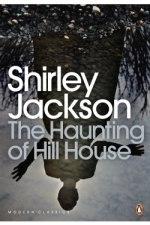
The Haunting of Hill House
Book
The best-known of Shirley Jackson's novels, and the inspiration for writers such as Neil Gaiman and...
Wayne Coyne recommended Live at Leeds by The Who in Music (curated)
Awix (3310 KP) rated The Incredible Hulk in TV
Mar 16, 2018 (Updated Mar 16, 2018)
The weird thing about the Hulk TV show is that it is almost nothing like the comic book version of the character, but still manages to be a classic piece of television (and was, for a long time, by far the most successful adaptation of a Marvel character to another medium). Creator Kenneth Johnson didn't want to do it, and did his hardest to distance his version from the book (he wanted to change the colour of the Hulk, but Marvel refused to let him), and ended up basically doing an American version of Les Miserables (the novel, not the musical) with Jean Valjean getting cross and swelling up into a monster twice an episode.
Everyone remembers this show as the one with the Hulk rasslin' small-time thugs every week, lots of jokes about 'how many shirts does this guy get through, ha ha', and 'you won't like me when I'm angry', but the range of styles and influences involved is really much greater - the programme goes from serious movie-of-the-week drama, to freewheeling comedy, to B-movie inspired horror and SF, and makes a pretty good job of all of them. Highlights include 'The Snare' (psycho millionaire whose hobby is hunting and killing drifters picks the wrong target), 'The Psychic' (a woman with unusual powers discovers Banner's secret just as it seems the Hulk has committed a murder), 'Equinox' (Banner and his indefatigable nemesis McGee finally come face-to-face at a masked ball, rather inspired by Masque of the Red Death), and 'The First' (Banner encounters another Hulk, created in the 1940s).
The programme's great strength is Bill Bixby's performance as Banner, for he is always utterly committed and usually highly convincing even when the episodes themselves wobble a bit. The show's Hulk is mute, but even so Ferrigno gives an increasingly effective turn as the creature (and eventually gets an episode where he appears as himself, so to speak, and does a pretty good job).
It is occasionally a bit formulaic, and you have to accept a few built-in implausibilities in the format, but this is a show which still stands up extremely well, and is still probably the biggest single influence on public perceptions of the Hulk. Well worth watching.
Everyone remembers this show as the one with the Hulk rasslin' small-time thugs every week, lots of jokes about 'how many shirts does this guy get through, ha ha', and 'you won't like me when I'm angry', but the range of styles and influences involved is really much greater - the programme goes from serious movie-of-the-week drama, to freewheeling comedy, to B-movie inspired horror and SF, and makes a pretty good job of all of them. Highlights include 'The Snare' (psycho millionaire whose hobby is hunting and killing drifters picks the wrong target), 'The Psychic' (a woman with unusual powers discovers Banner's secret just as it seems the Hulk has committed a murder), 'Equinox' (Banner and his indefatigable nemesis McGee finally come face-to-face at a masked ball, rather inspired by Masque of the Red Death), and 'The First' (Banner encounters another Hulk, created in the 1940s).
The programme's great strength is Bill Bixby's performance as Banner, for he is always utterly committed and usually highly convincing even when the episodes themselves wobble a bit. The show's Hulk is mute, but even so Ferrigno gives an increasingly effective turn as the creature (and eventually gets an episode where he appears as himself, so to speak, and does a pretty good job).
It is occasionally a bit formulaic, and you have to accept a few built-in implausibilities in the format, but this is a show which still stands up extremely well, and is still probably the biggest single influence on public perceptions of the Hulk. Well worth watching.
Hazel (1853 KP) rated 13 Days of Midnight in Books
Dec 17, 2018
<i>This eBook was provided by the publisher via NetGalley in exchange for an honest review
Thirteen Days of Midnight</i> is the slightly lighthearted, young adult novel by Leo Hunt set in contemporary Northeast England. Luke Manchett is an average sixteen-year-old boy who mostly cares about his reputation as a member of the school rugby team, and attracting the attention of his crush, Holiday Simmon. However, his life drastically changes on discovering that his absent, psychic exorcist, of a father has died.
Luke is not affected by the actual death, as he barely knew his father; it is the things he inherits as the only named beneficiary of his father’s will that twist his life upside down. It turns out that Horatio Manchett was not a television phony but actually a powerful necromancer. The biggest shock of all is that Luke is now the owner of a collection of eight sinister ghosts who want him dead. With Halloween fast approaching, when the souls’ powers will be at their strongest, Luke with the help of mysterious school friend, Elza Moss, and an ancient book they cannot read, must find a way to release the ghosts without causing harm to anyone else.
<i>Thirteen Days of Midnight </i>is not scary in the way some readers may expect paranormal novels to be. Although it contains ghosts and death threats it is not written in a way meant to terrify, rather to entertain. Luke and Elza’s lack of knowledge and experience with a large number of spirits helps the reader relate to the story, as it is with great doubt that any other teenager would have known exactly what to do. Luke’s dog, Ham, also adds a bit of humour to the book.
There were a few typical aspects to the story, which made it less original. A paranormal novel based at Halloween seems a fairly obvious choice of setting, and popular boy developing a friendship (and possibly more) with an unpopular girl seems rather mainstream in regards to current young adult books.
Some paranormal/horror novels can be a bit over the top and occasionally confusing, therefore it was a surprise to discover how good Thirteen Days of Midnight is. The main characters are likable, the narrative flows well and it is overall entertaining to read. It is definitely a recommendable book.
Thirteen Days of Midnight</i> is the slightly lighthearted, young adult novel by Leo Hunt set in contemporary Northeast England. Luke Manchett is an average sixteen-year-old boy who mostly cares about his reputation as a member of the school rugby team, and attracting the attention of his crush, Holiday Simmon. However, his life drastically changes on discovering that his absent, psychic exorcist, of a father has died.
Luke is not affected by the actual death, as he barely knew his father; it is the things he inherits as the only named beneficiary of his father’s will that twist his life upside down. It turns out that Horatio Manchett was not a television phony but actually a powerful necromancer. The biggest shock of all is that Luke is now the owner of a collection of eight sinister ghosts who want him dead. With Halloween fast approaching, when the souls’ powers will be at their strongest, Luke with the help of mysterious school friend, Elza Moss, and an ancient book they cannot read, must find a way to release the ghosts without causing harm to anyone else.
<i>Thirteen Days of Midnight </i>is not scary in the way some readers may expect paranormal novels to be. Although it contains ghosts and death threats it is not written in a way meant to terrify, rather to entertain. Luke and Elza’s lack of knowledge and experience with a large number of spirits helps the reader relate to the story, as it is with great doubt that any other teenager would have known exactly what to do. Luke’s dog, Ham, also adds a bit of humour to the book.
There were a few typical aspects to the story, which made it less original. A paranormal novel based at Halloween seems a fairly obvious choice of setting, and popular boy developing a friendship (and possibly more) with an unpopular girl seems rather mainstream in regards to current young adult books.
Some paranormal/horror novels can be a bit over the top and occasionally confusing, therefore it was a surprise to discover how good Thirteen Days of Midnight is. The main characters are likable, the narrative flows well and it is overall entertaining to read. It is definitely a recommendable book.
Gareth von Kallenbach (980 KP) rated X-Men: Dark Phoenix (2019) in Movies
Jul 2, 2019
Ever since X-men First Class was released, Jean Gray one of the more pivotal characters in the X-Men universe has been surprisingly absent. Often portrayed at not only having psychic abilities that rivals Charles Xavier, but also attracted the admiration of both Cyclops and Wolverine. While she was a staple in the original film and subsequent sequels her first appearance in the newest series did not occur until X-Men Apocalypse. With the release of Dark Phoenix, we had hoped to finally get an opportunity to explore a bit of her background story and her transformation into Dark Phoenix.
Dark Phoenix begins on a small country road where a very young Jean Grey is arguing with her parents over what music to listen to. In traditional parent fashion, her mother reminds her that the driver is the one who chooses the music and when she is old enough to drive she can choose her own music. This small disagreement turns into a deadly confrontation, when the young Jean, unable to control her vast powers causes her mom to fall asleep at the wheel, resulting in a head on collision killing both her parents. The doctors are amazed that this young girl has survived without a single scratch and a young Charles Xavier arrives to take her to a place where she can be safe.
Fast Forward to the year 1992 where the space shuttle Endeavor, on a routine mission, encounters a cosmic entity that cripples it in space. The X-men, who are now looked at as heroes by most of the world are tasked to bring the astronauts safely home, it’s a dangerous mission, but one that Charles feels will further cement the hero status of his team and continue to grow trust between mutants and humans alike. The mission goes surprisingly without incident until Jean and Night Crawler attempt to rescue the final remaining astronaut from the doomed shuttle. Night Crawler quickly teleports the astronaut to safety, but Jean is caught by the full force of the cosmic entity, absorbing it completely and destroying the shuttle. The team scrambles to locate her, and with the help of Night Crawler are once again able to bring her back to the safety of the X-Jet. Relieved that she has somehow miraculously survived the encounter the team is unaware that Jean and themselves will never be the same again.
As we’ve come to expect from the previous X-men movies, a star-studded cast leads the way. Familiar cast members such as Jennifer Lawrence (Raven), Tye Sheridan (Cyclops) and James McAvoy (Charles Xavier) are joined once again by Sophie Turner as the iconic Jean Grey. Sophie does an incredible job at bringing out both the uncertainty in her character and the extreme anger and rage that flows through her. Unfortunately for such a major character the movie only briefly touches the surface of who Jean Grey really is. The movie, even from the start tends to focus on Jean as a dangerous and angry young lady, unable to control her emotions which will ultimately open the doorway to her alter ego Dark Phoenix. The movie unfortunately treats her as a one-off character and skips most of her back story choosing to focus only on her Dark Phoenix personality. This leaves the audience with no understanding of the person she was prior to the transformation, only seeing Jean as an uncontrollable child who has now become an uncontrollable adult with “off the chart” powers. While Charles and other members of the team try to assure those around them (and the audience seated in the theaters) that Jean is a good person, a person worth saving, there is very little in the movie that allows us to sympathize with her plight. It ultimately villainizes her and leaves much of the cast (and the audience) wondering whether destroying her is the right choice for all humankind.
Visually Dark Phoenix is a masterpiece, whether it’s the awe-inspiring deepness of space, or the incredible visual effects as the mutants square off against each other with their powers. Buildings topple, subway cars are pulled from underground and general mayhem takes the stage. This is certainly one of the more action-packed movies in the series and getting the opportunity to watch some of our favorite mutants square off against one another is enough to excite even the ones least interested in the franchise.
Dark Phoenix as one might expect is also one of the darkest of the x-men movies. Unlike its other Marvel film counterparts, there is no levity in the movie at all. There are scenes that are heartwarming, but the movie takes itself very seriously. Even in a similarly dark Marvel movie Endgame there were moments that would make you laugh regardless of how dire the situation was, Dark Phoenix is not like this at all. It carries a weight to it that ensures that not only the people on screen, but those in the audience understand how truly dire the situation is. It detracts a bit from the spirit of the source material it derives from and could potentially alienate its core audience. This is a very adult movie, that deals with some very adult themes and parents might want to think twice before taking their youngest to see this film. With the X-Men franchise finally joining the MCU, it’ll be interesting to see how movies down the road treat these characters.
Dark Phoenix represents the end of an X-Men era that has existed in both its original and First-Class installments for over twenty years. The acquisition of Fox by Disney now brings this venerable franchise to the MCU family along with its cast of seemingly endless characters. While the movie is certainly better than Apocalypse, it can’t quite reach the heights of either First-Class or Days of Futures Past. The Dark Phoenix storyline does a good job staying closer to its comic book roots than its previous outing but rushes the origin and character development of Jean far more than she deserves. It’s a fine ending to the series as a whole but can’t quite deliver in all the ways I hoped it would.
Dark Phoenix begins on a small country road where a very young Jean Grey is arguing with her parents over what music to listen to. In traditional parent fashion, her mother reminds her that the driver is the one who chooses the music and when she is old enough to drive she can choose her own music. This small disagreement turns into a deadly confrontation, when the young Jean, unable to control her vast powers causes her mom to fall asleep at the wheel, resulting in a head on collision killing both her parents. The doctors are amazed that this young girl has survived without a single scratch and a young Charles Xavier arrives to take her to a place where she can be safe.
Fast Forward to the year 1992 where the space shuttle Endeavor, on a routine mission, encounters a cosmic entity that cripples it in space. The X-men, who are now looked at as heroes by most of the world are tasked to bring the astronauts safely home, it’s a dangerous mission, but one that Charles feels will further cement the hero status of his team and continue to grow trust between mutants and humans alike. The mission goes surprisingly without incident until Jean and Night Crawler attempt to rescue the final remaining astronaut from the doomed shuttle. Night Crawler quickly teleports the astronaut to safety, but Jean is caught by the full force of the cosmic entity, absorbing it completely and destroying the shuttle. The team scrambles to locate her, and with the help of Night Crawler are once again able to bring her back to the safety of the X-Jet. Relieved that she has somehow miraculously survived the encounter the team is unaware that Jean and themselves will never be the same again.
As we’ve come to expect from the previous X-men movies, a star-studded cast leads the way. Familiar cast members such as Jennifer Lawrence (Raven), Tye Sheridan (Cyclops) and James McAvoy (Charles Xavier) are joined once again by Sophie Turner as the iconic Jean Grey. Sophie does an incredible job at bringing out both the uncertainty in her character and the extreme anger and rage that flows through her. Unfortunately for such a major character the movie only briefly touches the surface of who Jean Grey really is. The movie, even from the start tends to focus on Jean as a dangerous and angry young lady, unable to control her emotions which will ultimately open the doorway to her alter ego Dark Phoenix. The movie unfortunately treats her as a one-off character and skips most of her back story choosing to focus only on her Dark Phoenix personality. This leaves the audience with no understanding of the person she was prior to the transformation, only seeing Jean as an uncontrollable child who has now become an uncontrollable adult with “off the chart” powers. While Charles and other members of the team try to assure those around them (and the audience seated in the theaters) that Jean is a good person, a person worth saving, there is very little in the movie that allows us to sympathize with her plight. It ultimately villainizes her and leaves much of the cast (and the audience) wondering whether destroying her is the right choice for all humankind.
Visually Dark Phoenix is a masterpiece, whether it’s the awe-inspiring deepness of space, or the incredible visual effects as the mutants square off against each other with their powers. Buildings topple, subway cars are pulled from underground and general mayhem takes the stage. This is certainly one of the more action-packed movies in the series and getting the opportunity to watch some of our favorite mutants square off against one another is enough to excite even the ones least interested in the franchise.
Dark Phoenix as one might expect is also one of the darkest of the x-men movies. Unlike its other Marvel film counterparts, there is no levity in the movie at all. There are scenes that are heartwarming, but the movie takes itself very seriously. Even in a similarly dark Marvel movie Endgame there were moments that would make you laugh regardless of how dire the situation was, Dark Phoenix is not like this at all. It carries a weight to it that ensures that not only the people on screen, but those in the audience understand how truly dire the situation is. It detracts a bit from the spirit of the source material it derives from and could potentially alienate its core audience. This is a very adult movie, that deals with some very adult themes and parents might want to think twice before taking their youngest to see this film. With the X-Men franchise finally joining the MCU, it’ll be interesting to see how movies down the road treat these characters.
Dark Phoenix represents the end of an X-Men era that has existed in both its original and First-Class installments for over twenty years. The acquisition of Fox by Disney now brings this venerable franchise to the MCU family along with its cast of seemingly endless characters. While the movie is certainly better than Apocalypse, it can’t quite reach the heights of either First-Class or Days of Futures Past. The Dark Phoenix storyline does a good job staying closer to its comic book roots than its previous outing but rushes the origin and character development of Jean far more than she deserves. It’s a fine ending to the series as a whole but can’t quite deliver in all the ways I hoped it would.
